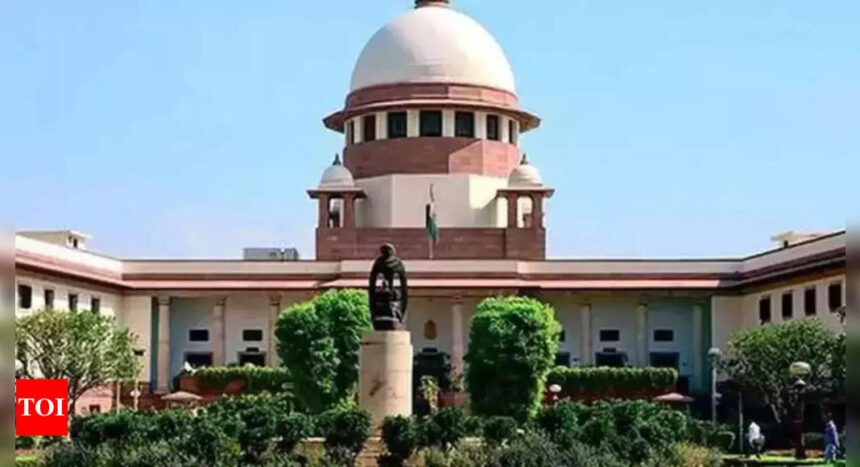The Supreme Court on Monday directed the Centre to respond to a petition questioning the constitutional validity of Sections 8 and 9 of the Representation of the People Act (RP Act), 1951, which pertain to the disqualification of MPs and MLAs due to convictions.
A bench comprising Justices Dipankar Datta and Manmohan requested the Centre to submit its affidavit regarding the plea, warning that the court may proceed to decide the matter without the government’s input if the affidavit is not filed. The bench also invited the assistance of Attorney General R. Venkataramani regarding the plea demanding a permanent bar on those convicted of criminal offenses from contesting elections to the Parliament and state legislatures.
Additionally, the apex court sought a response from the Election Commission of India. Section 8 of the RP Act disqualifies individuals convicted of specific offenses from contesting elections starting from the date of their conviction and for six years following their release from prison. Meanwhile, Section 9 of the RP Act disqualifies individuals dismissed from government service for corruption or disloyalty to the state for five years following their dismissal.
Regarding the expeditious disposal of criminal cases involving lawmakers, the bench stated that it would not be appropriate for a two-judge bench to revisit the issue, as a three-judge bench had already issued a judgment on November 9, 2023, concerning the matter. The apex court ordered that this issue be presented to the Chief Justice of India for consideration by a larger bench.
However, the bench will decide on the matter of disqualification for convicted politicians and has requested responses from both the Union of India and the Election Commission. The top court has scheduled the matter for hearing after three weeks.
The bench was addressing a Public Interest Litigation (PIL) filed by advocate Ashwini Upadhyay, who seeks a life-long disqualification for MPs and MLAs as well as a one-year timeline for the resolution of criminal cases against government officials.
During the proceedings, senior advocate Vijay Hansaria, acting as amicus curiae in support of the court, pointed out major obstacles, including special MP/MLA courts dealing with various matters, frequent adjournments, and inadequate enforcement of procedures.
Senior advocate Vikas Singh, representing the petitioner, urged the bench to tackle the issue of convicted individuals re-entering politics. He argued that permitting those convicted of serious crimes to return to politics after serving a short sentence undermines democratic integrity. Singh further criticized political parties for consistently selecting candidates with criminal backgrounds.
He emphasized, “Our democracy has grown over 75 years, yet 46-48 percent of elected representatives face serious allegations, including rape and murder. Parliament could not have intended for such individuals to govern.” Upadhyay approached the apex court advocating for the swift resolution of cases against MPs and MLAs as well as disqualification for those convicted. Currently, convicted politicians are banned from contesting elections for six years. (ANI)










